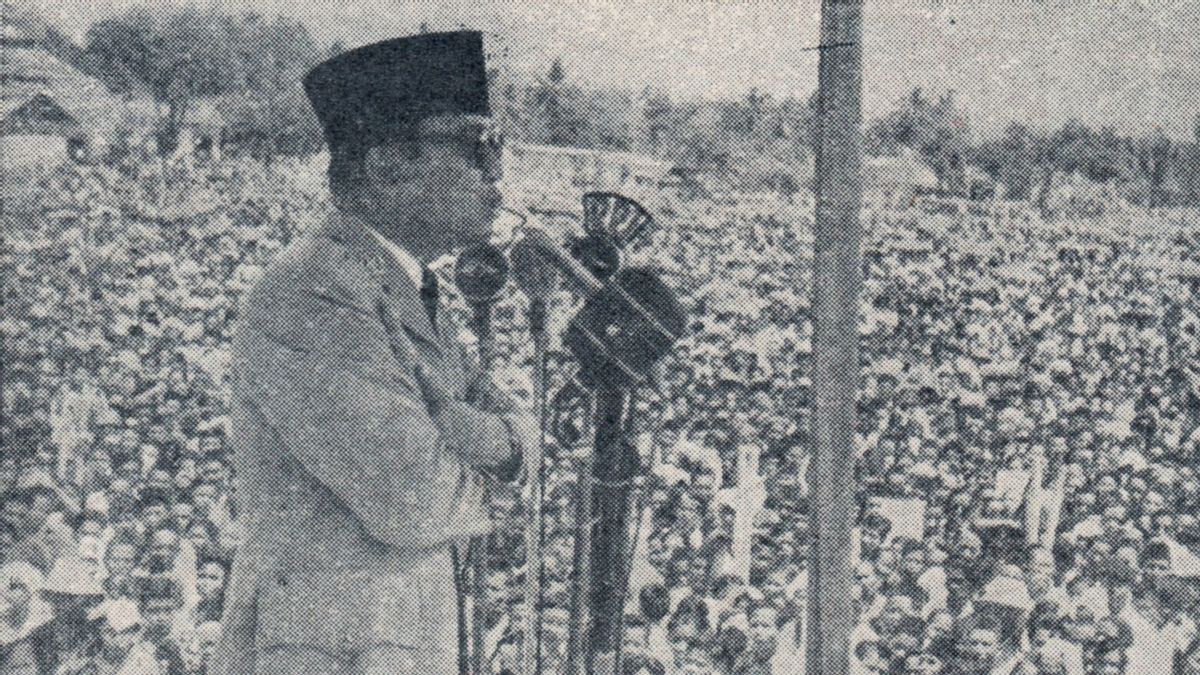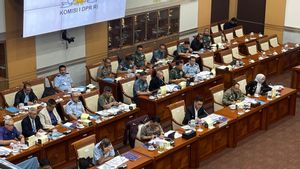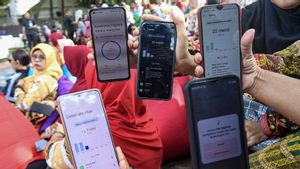JAKARTA - The pandemic has caused tremendous pressure on the world economy. The United States (US), Germany, France, South Korea, Hong Kong, and Singapore and Malaysia have declared recession conditions. Finally, Japan followed a row of world countries. Indonesia is predicted to fall in the same abyss. History records, the first time Indonesia's recession as a republic occurred in 1960.
Japan, is said to have something in common with Indonesia. The two countries have neither implemented the lockdown as an option to keep the economy alive. However, as strong as Japan is, their economy is now recording minus 7.8 percent in the second quarter of 2020. In the previous quarter, Japan was also minus 2.2, percent.
A recession is the two consecutive quarters of negative economic growth a country experiences. Executive Director of Indef Tauhid Ahmad explained that Indonesia has actually experienced a recession when referring to the projected economic growth throughout the year issued by the government. We just have to wait for the official announcement from the authorities.
"If we take the midpoint it is minus. Our economic growth is minus 0.5 or 0.4 percent. This means that in the third quarter it is still negative. If it is still negative, because we have been negative for two quarters in a row, it will be a recession. "The statement of the growth figures means that the government has actually acknowledged that a recession will occur, especially in the third quarter," he told VOI, Tuesday, August 18.
Indonesia's first recession as a republicIndonesia's post-independence political and economic conditions until the 1960s were far from good. Politically, Indonesia is already independent. However, economically, dependence on foreign companies is never finished. Moreover, the policies at that time placed the economy under a general political strategy, in which, under the power of Indonesia's first president, Soekarno, politics was like commander-in-chief.
Quoted from the writings of economic expert, M. Fadly in Tempo Magazine entitled Widjojo in the Middle of Efforts to Resolve the Economic Crisis (2001), it was explained that during the early phase of Soekarno's administration, the Indonesian economy had grown 4-5 percent in a year. The policy basis used was to make peace with the Netherlands and reintegration of the Indonesian economy to the world economy. But that principle was abandoned, and problems then came.
"However, since 1957, this principle was abandoned. Relations with the Netherlands deteriorated, even into conflict and war, and Sukarno further isolated Indonesia from the Western world. The planning of economic development moved from the rational principle of Sumitro and Djuanda to the revolutionary-nationalist principle of Moh Yamin with its rhetoric and symbolism. The economy retreated further until the collapse of 1966.

On that basis, the steps taken by the government tend to sound ambitious and unrealistic. As a result, in order to achieve the target of the Five Year Development Plan (Repelita), the government changed the position of Bank Indonesia, from being free to make its own policies without interference from the authorities, to being under the government.
As a result, Bank Indonesia printed as much money as possible. At the same time, the government used the money to fund many things, from building many lighthouse projects, agitation and propaganda against Malaysia, the nationalization of foreign companies, and the purchase of combat equipment.
That was what made Soekarno fall from the head of power. Uniquely, this was unexpected by many parties. In fact, many problems have come to the nation of Indonesia which is young. For example, the financial crisis, including recession, skyrocketing inflation, plus the exchange rate that soared considerably due to the uncontrolled circulation of money.
"Even beyond the estimates of experts in their fields. The economic crisis was followed by other crises such as a crisis of confidence in leadership and a moral crisis that hit state officials. As a result, the pace of government has become stagnant and stagnant, it no longer has the power to work to overcome the crisis, "wrote Syaifruddin Jurdi in the book Power of Indonesian Politics (2016).
People became victimsIn the end, the people became victims. Government employees and laborers, including victims of the ferocious economic crisis. At that time the monthly salary received was not commensurate with the price of the goods.
Sadly, they also demand that the government and businessmen make payments as salaries from holiday allowances, replaced by various basic necessities, such as rice, flour, cooking oil and so on, so that they can survive in the midst of a crisis.
The description of the economic crisis in the early 1960s was also immortalized by Firman Lubis in his book Jakarta 1960s: Memories during a Student (2008). The former student of the Faculty of Medicine at the University of Indonesia has witnessed the crisis.
According to Firman, during the crisis the value of money continued to decline which caused the price of goods to skyrocket. He gave this example through the price of noodles in 1962, which per bowl was still at Rp. 5. The price is very cheap compared to the scholarship fee which touches Rp. 850 a month.
Unfortunately, at the end of 1965, the scholarship money meant almost nothing to him. Even though the amount is increasing to IDR 3,500 per month, the price of noodles has reached IDR 1,500 per bowl. "The prices of living necessities continue to creep up. Inflation has risen sharply, even up to several hundred percent. Various basic needs of the community are increasingly difficult to find. "
Not only Firman, Soe Hok Gie in his notes which was made into a legendary book entitled "Notes of a Demonstrator (1983), mentions that students who lived in 1966 could no longer bear to take to the streets because of the soaring prices of goods and services.
"Several groups of students were busy talking seriously - but hotly - about the Rp200 to Rp1,000 bus price hike. I expected this kind of atmosphere for a long time, so it's not too surprising for me, ”concluded the man who is familiarly called Gie.
The English, Chinese, Japanese, Arabic, and French versions are automatically generated by the AI. So there may still be inaccuracies in translating, please always see Indonesian as our main language. (system supported by DigitalSiber.id)













